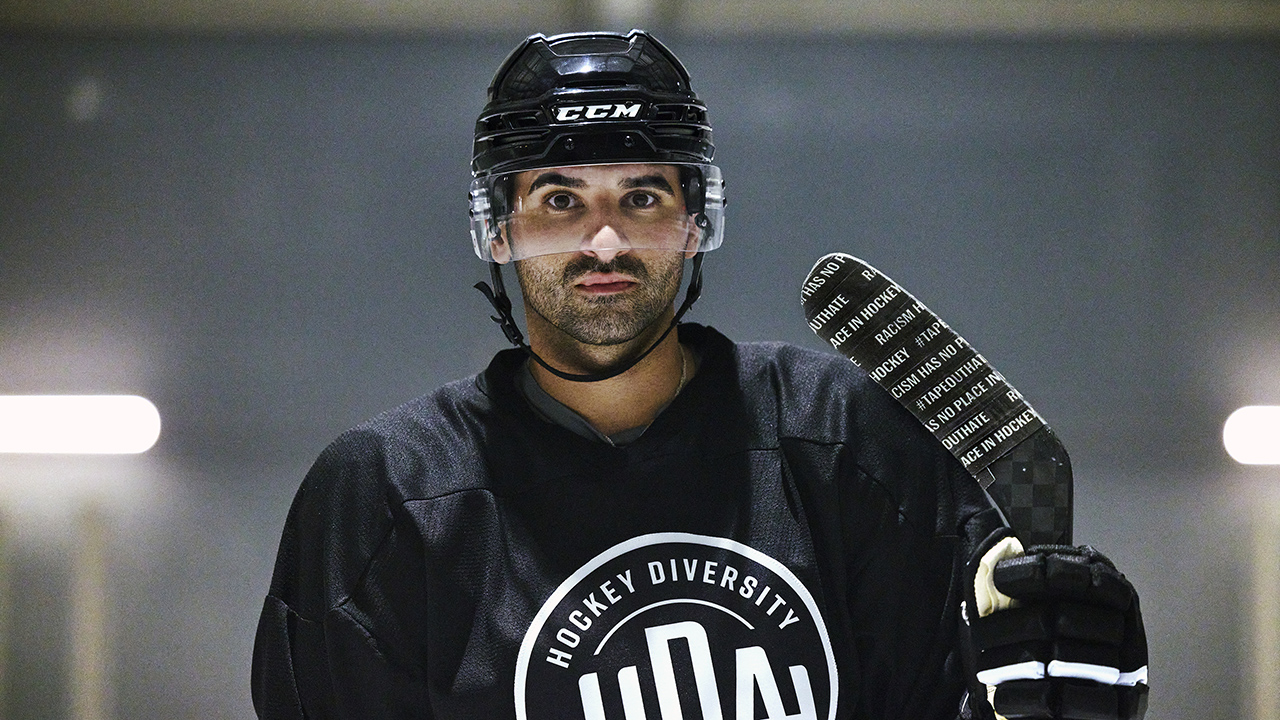
There’s a poem by the brilliant Suhaiymah Manzoor-Khan that speaks of something like these moments. Where the story we tell each other, the one we think is proof enough of our understanding, misses the point entirely.
“It is not the poem I want to write. It is the poem I have been reduced to,” Manzoor-Khan says in that piece, which she titled, ‘This is not a humanising poem.’
“Reduced to proving my life is human because it is relatable. Valuable because it is recognizable.”
She speaks of the ways in which she, as a Muslim woman in the UK, is just that: relatable, recognizable. How she can banter about the weather in the post-office queue, too, how she cried at the end of Toy Story 3, like everyone else.
But she stops short. “This will not be a ‘Muslims are like us’ poem,” Manzoor-Khan says. “I refuse to be respectable.
“Instead, love us when we’re lazy. Love us when we’re poor. Love us in our back-to-backs, council estates, depressed, unwashed and weeping. Love us high as kites, unemployed, joy-riding, time-wasting, failing at school. Love us filthy, without the right colour passports, without the right sounding English.
“Love us then. Because if you need me to prove my humanity, I’m not the one that’s not human.”
I was reminded of Manzoor-Khan’s words while watching the storm that’s hung above Nazem Kadri these past few days, as one of the NHL’s few Muslim players saw a moment during a game spiral into racist, Islamophobic harassment of him and his family so hateful and unhinged that law enforcement was brought in to investigate.
I was reminded of them two days later, when Kadri showed up to work again, and performed to the best of his abilities — a hat trick, a four-point night, a victory, a series lead. The hockey world rightfully lauded the poise he’s shown amid an impossible situation, the resilience he was forced to find, to do what he’s expected to in circumstances far more extreme than he should ever expect to navigate.
I was reminded, in the aftermath of that strange triumph, that this is where the path diverges between the ones who’ve had this experience directed at their own skin, and the ones watching from afar. Because the next part of these conversations tends to take on a similar sound — how it was overcoming that hatred that allowed him to find greatness, how it was that vile energy that gave him the push he needed to take the next step in his ascent. How it was a terrible thing, of course, but in a way, maybe not so terrible, in what it inspired.
But don’t get it twisted — it’s nothing more than a terrible thing. This isn’t a journey Kadri needed to endure on that path to greatness. This isn’t the setup chapter to the story of how he persevered and won it all. He could’ve won it all anyways.
He could be great, anyways. He could score goals, get wins, push teams to the brink, anyways. This is who Nazem Kadri is, in spite of the bile, not because of it.
And so I was reminded of Manzoor-Khan, writing of the idea that we can only appreciate someone’s humanity if we see ourselves in them, if they look and talk and act enough like us. Here, as we watch the fallout of a vile group of hockey fans who, moved to anger, saw brown skin and failed to appreciate Kadri’s humanity enough to treat him like any other NHLer.
Take issue with the way Kadri plays the game. Take issue with the suspensions, the physicality, the questionable calls — the same way you take issue with Milan Lucic running Mike Smith, or David Pastrnak taking out Antti Raanta. Between the boards, on that sheet, that’s fair game. But that isn’t what this is about.

This is about a flood of messages that didn’t mention bodychecks or collisions in the crease — they mentioned bombings, they mentioned 9/11, they mentioned the same tired slurs heard a hundred times before by everyone who’s navigated life after September 11th with brown skin. It’s about the messages taking words that could be beautiful if only we had the collective strength of character to see them that way — words like ‘immigrant,’ like ‘Muslim’ — and tainting them with bigoted venom.
This time, Kadri was able to earn a moment of triumph to tune out some of that noise. Most in that position don’t get that chance. They just get the noise, loud and unending. They just get the questions about why it is they aren’t able to show up, perform, do what’s expected of them. And most of the time, they leave. And we lose.
So, raise Kadri up for finding a way to be at his best through all this. Raise him up for the grace and dignity with which he’s handled this situation, for going as far as saying those who harassed his family don’t represent all of the St. Louis Blues’ fan base — even as those who do represent the St. Louis Blues haven’t had the decency to separate on-ice rivalries and off-ice death threats.
Raise Kadri up for all of that. But let’s stop short of hanging the glory on the hate speech, of seeing abuse as a catalyst, or winning as a satisfying enough resolution.
And above all else, let’s bury the conversation, here and now, about Nazem Kadri’s composure.
Because here, put in a position that the vast majority of those playing the game, watching the game, covering the game will never experience, he navigated that ruthless chaos better than any of us could ever hope to.






